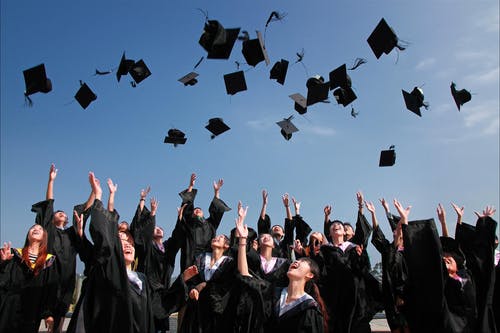South China Normal University is one of 112 universities included in U-Multirank for China. South China Normal University is a very large university located in Guangzhou with 32430 students enrolled (2017 data or latest available). It was founded in 1933. With regard to the scope of its subjects and degree programmes offered, the South China Normal University is a comprehensive institution. It does not offer programmes in foreign languages. Its overall profile shows top performance across various indicators, with 2 ‘A’ (very good) scores overall. For a comprehensive overview of this university’s performance, see its complete performance scores in the tables below.
Founded in 1933, South China Normal University is a non-profit public higher education institution located in the urban setting of the metropolis of Guangzhou (population range of over 5,000,000 inhabitants), Guangdong. Officially accredited and/or recognized by the Department of Education, Guangdong Province, South China Normal University (SCNU) is a very large (uniRank enrollment range: 35,000-39,999 students) coeducational higher education institution. South China Normal University (SCNU) offers courses and programs leading to officially recognized higher education degrees such as bachelor degrees, master degrees, doctorate degrees in several areas of study. See the uniRank degree levels and areas of study matrix below for further details. This 86 years old higher-education institution has a selective admission policy based on students' past academic record and grades. The admission rate range is 70-80% making this Chinese higher education organization a somewhat selective institution. International students are welcome to apply for enrollment.
outh China Normal University was founded in 1933 and was formerly the Teachers College of Guangdong Qin University. In 1996, he entered the ranks of key universities for national "211 Project" construction. In 2015, he became a joint university of the People's Government of Guangdong Province and the Ministry of Education. Ranks. The school currently has 3 campuses in Guangzhou Shipai, Guangzhou University City and Foshan Nanhai. The campus covers an area of 3025 acres, the school building covers an area of 1.53 million square meters, and 4.02 million books.
School physics is included in the national "world-class disciplines" construction goal, including educational technology, development and educational psychology, optics, sports humanities and sociology (key cultivation) 4 national key disciplines, and 9 national "211 projects" key construction Disciplines, 23 key disciplines in Guangdong Province (including 6 key disciplines for climbing peaks, 14 key disciplines for advantage and 3 key disciplines with characteristics, a total of 19 first-level key disciplines and 4 second-level key disciplines). In the fourth round of subject evaluation of the Ministry of Education, 4 disciplines of psychology, physical education, pedagogy, and Marxist theory have entered the category A disciplines, of which psychology has been rated A + disciplines; chemistry, mathematics, engineering, botany and zoology 5 materials science disciplines enter the top 1% of ESI worldwide. The school has 91 undergraduate majors, including 19 national first-class undergraduate professional construction sites and 9 provincial first-class undergraduate professional construction sites. There are 51 master's degree authorization points (33 master's degree authorization points, 18 master's degree points), 20 doctoral degree authorization points (19 doctoral degree points, 1 doctoral degree point) ), 18 postdoctoral mobile stations. The discipline layout covers 12 categories of philosophy, economics, law, education, literature, history, science, engineering, agriculture, medicine, management, and art.
The school has a well-structured and high-level team of teachers, and has a group of experts and scholars who have a certain influence at home and abroad. At present, there are 2,386 full-time teachers, including 1,522 with deputy senior titles and above, 1,227 Ph.D supervisors, and 2,287 PhD masters. There are 16 academicians (including dual employment and foreign nationals), 22 Cheung Kong Scholars, 23 National Outstanding Young Scientists Funds, 3 Cheung Kong Scholars and Innovation Team Development Plan innovation teams, 2 national teaching masters, and national teaching 3 teams, 14 national candidates for the multi-million talent project, 30 candidates for the New Century Excellent Talents Support Program of the Ministry of Education, 7 candidates for the Ten Thousand Talents Program, 6 "four batches" of talents from the Central Propaganda Department, national outstanding 7 youth fund winners, 5 leading talents in Guangdong Province, 2 Guangdong innovative scientific research teams, 54 Zhujiang scholars, 7 national training objects of the "Thousands and Tens Project" of Guangdong Higher Education Institutions, and subject from the Academic Degrees Committee of the State Council There are 3 members of the review team and 17 members of the Higher Education Teaching Steering Committee of the Ministry of Education.
The school has been enrolling students nationwide since the founding of the People's Republic of China. The enrollment now covers 34 provinces, autonomous regions, municipalities and special administrative regions. The school has full-time undergraduate students in the school 25643 people, 10349 people graduate, doctoral students 1211 people, post-doctoral stations in 232 people, 1039 students who formed the Bachelor - Master - PhD - postdoctoral complete training system. The school has 1 national science basic science research and teaching talent training base, 4 national experimental teaching demonstration centers, 19 Guangdong experimental teaching demonstration centers, 3 national college students 'off-campus practice education bases, and 37 Guangdong college students' off-campus practice Teaching base.
The school has a number of strong scientific research platforms. There are high-energy and high-safety lithium-ion battery electrolytes and separator materials and manufacturing technologies. National and Local Joint Engineering Research Center, National Green Optoelectronics International Joint Research Center, Key Laboratory of Laser Life Sciences, Ministry of Education, and Key Laboratory of Environmental Theoretical Chemistry. , Engineering Research Center of Electrochemical Energy Storage Materials and Technology, Ministry of Education, Joint Laboratory for Optical Information International Cooperation of Ministry of Education, Base for Optical Information Innovation and Introducing Intelligence, Demonstration Base for Internet Application Innovation Development Platform of Ministry of Education, Key Research Base of Humanities and Social Sciences of Ministry of Education ( Applied Psychological Research Center, Education Legislative Research Base), National Civil Policy Research Base of the National Civil Affairs Commission (Overseas Migration Research Center), State Sports General Research Center (Sports Social Science Research Base), Ministry of Education Recorded Country and Regional Research Center ( Southeast Asia Research Center); there are 10 Guangdong Provincial Key Laboratories, 1 Guangdong Provincial Engineering Lab, 30 Guangdong Provincial Engineering Technology Research Centers, 1 Guangdong Provincial Think Tank, and 1 Guangdong Provincial Emergency Technology Research Center 1 Guangdong International Cooperation Base 1 Guangdong Provincial Key Laboratory of Environmental Protection, 6 Guangdong Provincial Universities Scientific Research Key Laboratory, 3 Guangdong Provincial Engineering Technology Research Centers, 9 Guangdong Provincial Key Universities Humanities and Social Sciences Key Research Bases, 2 Guangdong Provincial General University Key Laboratory of Philosophy and Social Sciences, 4 Guangdong Province Social Science Research Bases, 2 Guangdong Province Decision Consulting Research Bases, etc.
The school actively and extensively conducts external exchanges. It has established cooperative relationships with more than 160 institutions of higher learning and scientific research institutions outside the country (overseas). It has introduced intelligence and high-quality educational resources, talent training, academic research, cooperative schooling, international conferences, academic results, and teaching Chinese as a foreign language. Has carried out substantive cooperation. The school and the Eindhoven University of Technology in the Netherlands, the University of Twente in the Netherlands and the University of Lund in Sweden have jointly established a joint laboratory for optical information international cooperation, and the University of Groningen has established an international joint laboratory for molecular science and display technology, and Milan, Italy International Joint Laboratory for Photocatalysis of Quantum Structures, co-constructed by the University of Bicocca. The school also established three Confucius Institutes with Coquitlam, British Columbia, Canada, the University of Reunion, France, and the University of Latvia.
The school gives full play to its advantages of being at the forefront of reform and opening up and being adjacent to Hong Kong and Macau, and strives to build a domestic first-class teacher training and training base, an educational research and policy consulting think tank, and a lifelong learning and resource sharing platform for teachers. As the "work machine" of Guangdong's education at all stages, the scale of the school's commitment to teacher training and continuing education has been at the forefront of universities in the country. The school is the "High School Continuing Education Demonstration Base" of the Ministry of Education, the "National Training Program" teacher remote training institution of the Ministry of Education; the Ministry of Education "National Training Program" overseas training project implementation office, the Ministry of Education college counselor training and training base, the Ministry of Education National practice training bases for teachers of ideological and political theory in colleges and universities, teacher training centers for colleges and universities in Guangdong province, and teacher development centers for primary and secondary schools in Guangdong province have successively settled in our school. The scope of education services spreads all over the country, and it has taken the lead in continuing to conduct two-way exchange training for principals in China, the United Kingdom, China, and the United States. It has initially formed a multi-level and comprehensive teacher post-service training system. Relying on the advantages of educational psychology and other disciplines, the school strengthens educational research, strives to build a high-end think tank for education in the south, and strives to establish several educational development research institutes (centers) in the Pearl River Delta, eastern and northern regions of Guangdong. The school serves Guangdong's comprehensive education reform, signs comprehensive strategic cooperation agreements with a number of local governments, and radiates high-quality school resources everywhere. The school has a deep historical foundation and first-mover advantage in serving the development of education in Hong Kong, Macao, and Taiwan. It is the earliest mainland university to jointly run schools in Hong Kong and Macao, and is hailed as one of the three strongest teachers in Macau.
For more than 80 years, the school has changed its name and relocated several times. Although it has gone through vicissitudes, it has never stopped singing. Generation after generation, Chinese teachers adhering to the fine tradition of “researching advanced academics and cultivating professional talents in society” at the Teachers College of Puqin University, and practicing the school motto of “hard work, rigorous scholarship, realistic and innovative, and a model for others”. Together, they have shaped the prosperity and development of the school today. The school adheres to the party's leadership, adheres to the direction of running a socialist school, is based in Guangdong, radiates Hong Kong and Macao, and faces the world. It is committed to cultivating outstanding teachers, promoting the development of regional education, leading teacher education in southern China, and providing talent support and intelligence for national and regional economic and social development. Support and cultural services, and strive to build innovative high-level universities with outstanding teacher education advantages.









